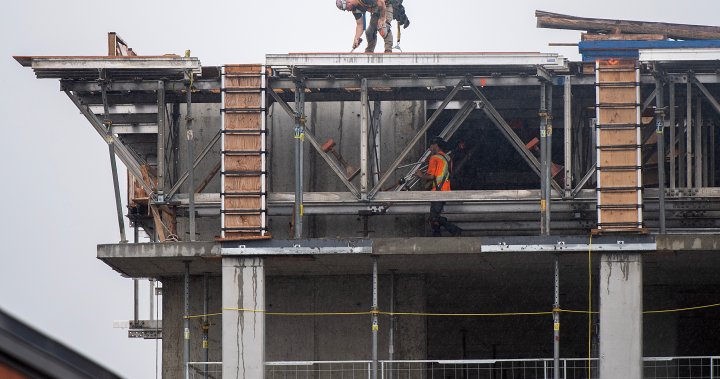Canada is exceeding its immigration targets each year and is now preparing to welcome more skilled trades workers into the country. However, the construction industry in Canada is experiencing a significant loss of jobs, according to recent data from Statistics Canada. In July, the construction industry saw a decrease of 45,000 jobs, a drop of 2.8% from the previous month. Since January 2023, the construction sector has lost a total of 71,000 jobs. This loss in jobs is higher than any other major sector in Canada, including public administration, information, culture, and recreation, and transportation and warehousing.
The construction industry is already facing a shortage of tens of thousands of workers, and this problem may worsen due to an upcoming wave of retirements. At the same time, Canada is struggling to meet the housing affordability needs of its population. The job vacancy rate in the construction industry is at a record high, with approximately 80,000 vacancies. These vacancies contribute to higher building costs and hinder productivity, which is particularly challenging as the residential construction industry must accommodate the needs of a growing population.
Fulfilling Canada’s labor shortages is a major priority for newly-appointed Immigration Minister Marc Miller. The government has implemented strategies such as Express Entry and the Immigration Levels Plan to address the ongoing labor shortage, especially in the housing sector. With provinces like Ontario needing 100,000 workers to meet housing demands, immigration plays a crucial role in creating more homes for Canadians. The federal government increased its immigration targets in November 2022, and there is a possibility that these targets may need to be further increased.
Canada Mortgage and Housing Corp. predicts a need for 3.5 million more homes by 2030 than what is currently being built. However, the number of new homes being constructed has been declining, and the annual pace of housing starts dropped by 23% in May of this year. The federal government recently introduced a separate stream of entry for newcomers with work experience in skilled trades to address the shortage of skilled trades workers. This initiative aims to support the construction sector in finding and retaining the workers it needs.
The category-based selection in the Express Entry program aims to attract skilled trades workers, including carpenters, plumbers, and welders. Applicants must have at least six months of full-time, continuous work experience in skilled trades in Canada or abroad within the past three years to qualify. However, migrant rights groups have raised concerns about the potential exploitation of workers in this category if sufficient safeguards are not put in place.
Overall, Canada recognizes the importance of addressing labor shortages in the construction industry and is taking steps to attract skilled trades workers through immigration programs. However, efforts must be made to ensure the protection and fair treatment of these workers to prevent exploitation.
Denial of responsibility! VigourTimes is an automatic aggregator of Global media. In each content, the hyperlink to the primary source is specified. All trademarks belong to their rightful owners, and all materials to their authors. For any complaint, please reach us at – [email protected]. We will take necessary action within 24 hours.


